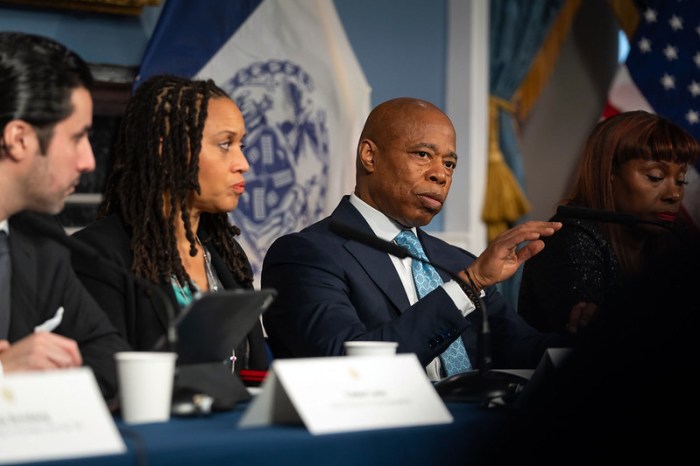Donald Trump isn’t the reason that Republican presidential candidates are taking positions on immigration that could harm the nominee in 2016.
Trump or no, Republicans were sure to compete over who possesses True Conservative credentials, because, well, that’s what Republicans do. Indeed, it’s basically a built-in feature of nomination politics for a cohesive party, which both Democrats and Republicans have been for some time now.
Candidates with similar policy views are driven to differentiate themselves to rise above the pack. Each candidate has a strong incentive to find some wrinkle to prove that he or she is a stronger supporter of the party’s agenda, rallying their party’s strongest partisans, who are those most likely to vote.
Immigration is not only one of the most contentious issues, it’s also one on which top contenders Jeb Bush, Marco Rubio and Scott Walker each has vulnerabilities. So it was always likely that another candidate — they can all read polls — would select immigration as a good battleground for differentiation.
That’s exactly what Mitt Romney and others did in 2012 when former Texas Gov. Rick Perry was a top-tier Republican candidate with a record of deviating from conservative orthodoxy on the issue. Romney proved his bona fides by condemning Perry as soft on undocumented immigrants.
Granted: If Trump hadn’t run, or hadn’t raised the issue, it’s impossible to know exactly how things would have played out. (We still don’t know how they’ll play out.) Maybe immigration wouldn’t have become so contentious so early, or perhaps the details would be different. Instead of ending birthright citizenship and building a wall, we might be talking about driver’s licenses or access to higher education for undocumented immigrants. Moreover, without Trump the race would likely be generating less publicity in August of 2015.
So does it even matter that Trump has commandeered the issue?
The key question is whether Hispanic voters who might otherwise have been willing to vote Republican in 2016 end up supporting the Democratic nominee as a result of the immigration debate among Republicans. (Long-term, the question is whether those Hispanics become locked in as partisan Democrats, just as black voters have chosen to be). It’s hard to see how Trumpification has decisively influenced that. What probably matters more is how all the candidates respond to the debate, regardless of who initiated it.
As Boston magazine’s David S. Bernstein (yes, my brother) noted Wednesday, it’s not even clear that Trump’s immigration plan is leading other candidates to change positions on birthright citizenship; some candidates had beaten him to the same position. For all we know, Trump is putting less pressure on the top tier than those candidates would have felt from another candidate seizing the immigration issue. Especially since Bush, Rubio or Walker might have been tempted to stake out an extreme position, the better to cover their other deviations.
The bottom line is this: As long as Republican politics demands extremism, some candidates are going to adopt highly controversial positions that rally conservative support while potentially driving away voters in general elections.
In the 2016 primary this was bound to happen — Trump or no Trump.
Jonathan Bernstein is a Bloomberg View columnist covering U.S. politics.

















